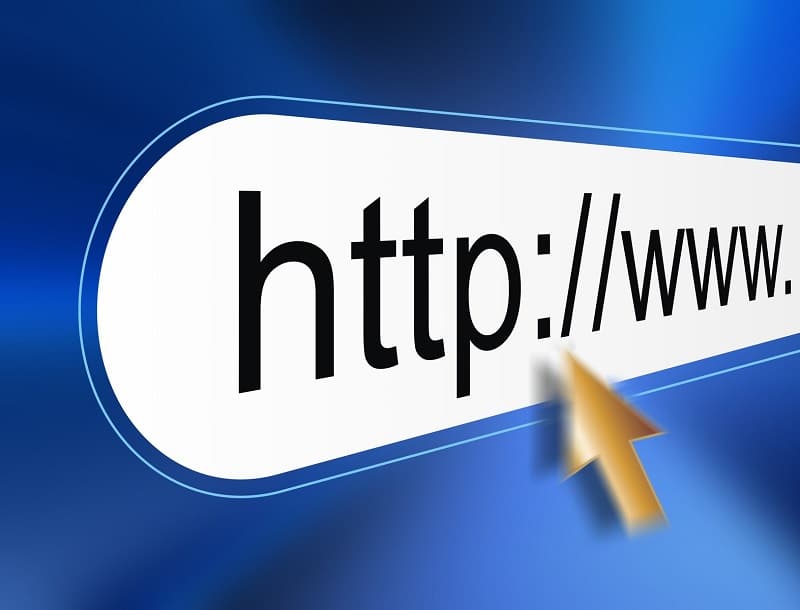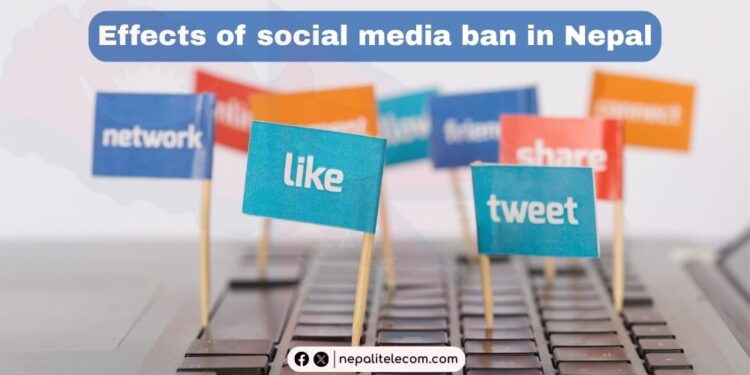- Nepal's social media ban, effective September 3rd, 2025, impacts Facebook, Instagram, and X.
- The ban may increase international bandwidth demand, leading to slower internet speeds and higher costs.
- Businesses and individuals risk losing income and engagement due to restricted access to social media platforms.
The ban on unregistered social media platform in Nepal will come into effect from September 04, 2025). The ban applies to Meta platforms such as Facebook, Instagram, and others, such as X (Formerly Twitter). But while that sounds fair from the government’s perspective, it may also affect the country in multiple ways, from bandwidth patterns to businesses. This post explores the effects of social network ban in Nepal.
The ban follows many instances of the government’s warning to social media to register in Nepal
Table of contents
Social media ban effects in Nepal
On Bandwidth
A social media ban could adversely affect Nepal’s bandwidth consumption pattern. Presently, Nepal’s international bandwidth import stands at approximately 2.5 Tbps. A large chunk of it is consumed for web and social networks. This translates to domestic bandwidth, too. It’s said that around 10 Tbps of bandwidth is used domestically via CDN and local cache servers. And over 80% of it is used in surfing social networks.
After the ban, users may resort to VPN and DNS apps to access social media. This will increase international bandwidth from 2.5 Tbps. Although there are risks to using VPNs and DNS setups to access restricted digital platforms, it’s a common practice among users. The infrastructure that’s serving 2.5 Tbps international bandwidth may not withstand the pressure to serve a higher volume of that bandwidth all of a sudden. The spike in international bandwidth will congest the internet traffic. This will affect the quality of internet use. Content will load much more slowly due to increased latency.
Check out: Social Media Bill – 2081 punishment proposals and other details
Loss of earning opportunity
A ban on social networks potentially dampens users’ ability to earn income through their content. Let’s put it into a more immediate perspective. Meta has started Facebook monetization in Nepal. So, many are entertaining the possibility of earning through their Facebook post, photos, reels, videos, etc. Many have also got their pages and profiles monetized and are showing their earning on their posts. A ban on Facebook could adversely affect that source earnings from digital platforms.
Increased internet price
More international bandwidth requires more spending on infrastructure to make it efficient to handle more bandwidth. That money spent on improving the infrastructure will eventually trickle down to the end users. The cost of the internet has always been a topic of the industry among the ISPs, the government, the users, and the stakeholders. This could again turn into a hot topic if the social network comes to a halt.

Limit the creativity
Many use Facebook, Instagram, and other social networks to exert their creativity publicly. Users make posts, videos, and other types of content to ‘sell’ them across a broader range of audiences. It’s even evolved into a way of life for many. A sudden loss of access to Facebook and other social networks harshly affect users’ creative zeal and even their daily lives.
Also: Social media rules in Nepal: List of what you can’t do?
Effect on businesses
Many small and medium enterprises (SMEs) run by companies, small groups of like-minded people, or even individuals will lose their engagement with customers after the Facebook ban. They could eventually reconnect via other social networks. But immediately, they will be at a loss as to explore options.
Many advertise their products, services, and content creators also sell their content on Facebook and other platforms. Social networks such as Facebook have given users a platform to work and earn. A ban will negatively affect the economic prospects for many.
Risk from using VPNs
Using VPN and DNS services could put user data at risk. Most regular Nepali internet users use freely available VPN and DNS apps to access restricted sites. It’s possible they would do the same to access Meta platforms and other social networks if the ban ensues. When users have these apps activated, servers stored outside of Nepal process the internet data and send it to Nepali users. Not every app can be trusted. Using premium VPN and DNS apps could be one way to maximize security and privacy. However, it can’t be guaranteed either.
Don’t miss: How do VPN and DNS apps work and are they safe to access TikTok and other apps?
A bad precedent for digital Nepal!
The government of Nepal promotes the idea of a digital Nepal. Compared to other sectors, ICT is a comparatively more affluent one so far. However, a ban on social networks would put a dent in the government’s ambitions for a digital transformation of the country. Facebook alone has around 16 million users in Nepal and is the most widely used social network in Nepal. Its ban sets a bad precedent for the government and its digital aspirations.

Could irritate foreign tech companies!
Nepal is fair to seek registration from unregistered companies. However, ultimatums and ban impositions could irk foreign companies that operate their services in Nepal. With the ban decision, the government won’t be in a strong position to request them to resume services. For them, Nepal could serve as a small market from a financial perspective.
Telegram app ban in Nepal | Current status possibility of an unban
So, the initiation could have been done through a continuous approach toward negotiation rather than multiple ultimatums. It’s almost turning out to be like who needs the other most. But it doesn’t reflect positively on Nepal government.
Our two pence
The government does have its reasons to seek registration of social media in Nepal. It’s an important step necessary for the government’s regulation purposes and bringing foreign companies into the rulebook of the country.
However, discussions should also be held on why Meta, X, and other companies are hesitant to comply with the government’s request to register. A ban on such large social media platforms may not turn out well for Nepal, especially when platforms like Facebook have become such an integral part of life for all for information dissemination and business purposes.
A middle approach could have been to encourage Meta and others to come to the table for discussion and work on policies that are approachable and that serve interests of both the Nepal government and the tech companies and also keep users’ data safe.
We are keeping tabs on all the latest development on this social media ban frenzy. And we will keep you updated with the details right when they emerge. Do visit nepalitelecom.com to directly access all of our content.











